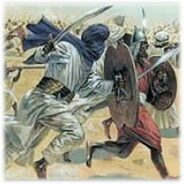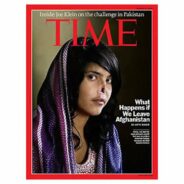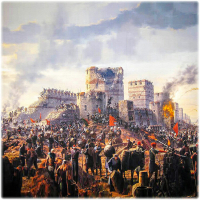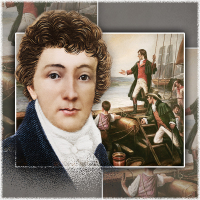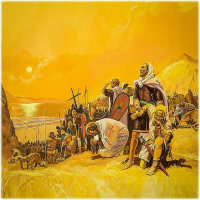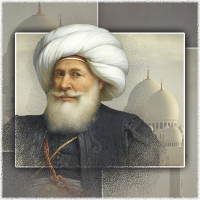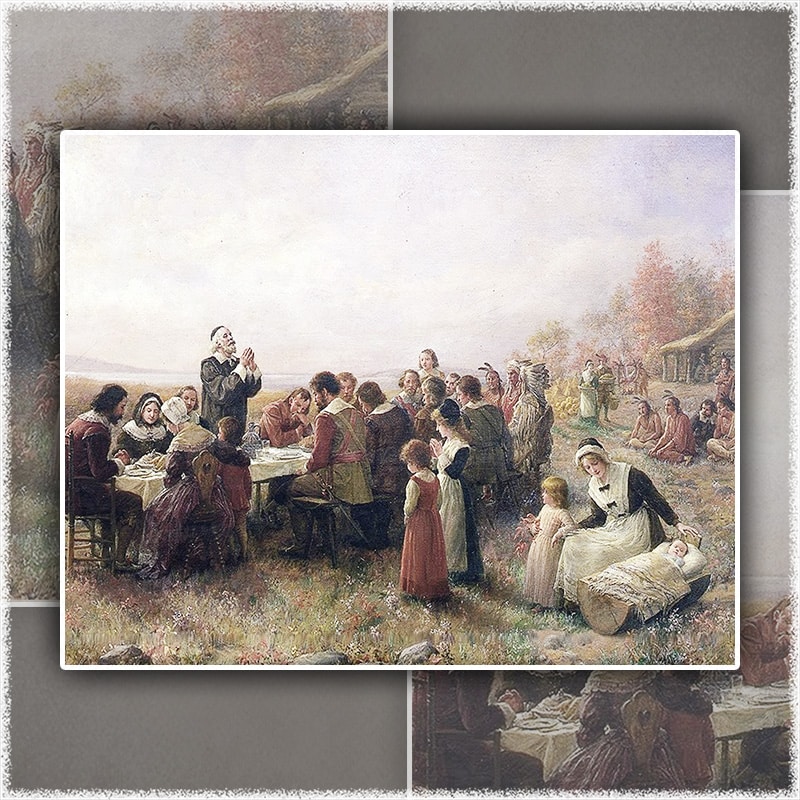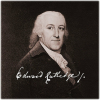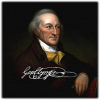The Effects of Islam on the World

The West has often given credit to Islam for its contributions to the development of civilization. The so-called "Golden Age" of Islam was nothing but the social and intellectual properties of the societies they put to the sword. As Muslim expert Robert Spencer writes, "...Islam was not the foundation of much significant cultural or scientific development at all."[1] When the facts are known, they will reveal that the West has inordinately credited Islam for contributions to Western civilization that it has never made.
What is apparent from contemporary assessment of Islam is a lack of accurate knowledge of its history. One of the facts that supports this position is the regular use of expressions such as "radicals" or "extremists" to describe those who follow the teachings of Mohammad as presented in his writings, the Quran. But for those willing to do their historical homework, they will quickly learn that the so-called extremists or radicals are the "real" Muslims, who follow both Mohammad's blood-letting practices as well as his principles found in the Quran. They will discover that Islam has always been a blood-letting religion, from its inception under Mohammad. The only individuals who argue that Islam is peaceful are politicians and religious leaders who are complicit at the demise of their countries; in addition, those who have been willing to follow these political and religious guides share in the mind-numbing influence of historical illiteracy. Since American public schools have been rewriting history to accommodate a liberal world-view, this means that most graduates of those schools are oblivious to the historical facts that surround Islam. As a result, America and the Western world are led as sheep to the slaughter!
A slow and careful reading of the following article from the Methodist Quarterly Review will help debunk the popular argument that present-day terrorists are "radicals" or "extremists". Nothing could be further from the truth. What should be noted is that the following article was published in 1878, demonstrating the long bloody history of real Islam. This article demonstrates that Islam has blazed a trail of death and destruction in previous generations—since its founder, Mohammad, personally beheaded hundreds of his adversaries—and it will continue to do so because of the blood-letting principles of the Quran.
The True Legacy of Islam
The following article is taken from the Methodist Quarterly Review, 4th series, vol. XXX (January 1878): 18-27.
A class of writers, as we have seen, advance Islam to the position of a God-sent religion, fraught with unmingled good to our race, "the generous rival of Christianity for the good of humanity." We have a new era in the discussion of Mohammedanism, and this claim is now emphatically before the bar of the world. In the light of facts it must be judged. If what we have written about Mohammed and the Koran is true, then, a priori, we might be certain that Islam founded by a deceiver, perpetuated in fraud, and involving errors fundamental, vicious, and vice-producing, would be most pernicious in its effects on the world. Arguments from some incidental benefits, such as result from almost every evil or calamity, must not blind us to the real character of a system essentially baleful in tendency.
The rapidity of the Moslem conquests finds no parallel in history. The swiftness of the serried Macedonian phalanx and the resistless sweep of the mighty Roman legion, are eclipsed by the wild-rushing tornado of the Saracen horde. Within a hundred years from the death of the prophet, who bequeathed his sword to Abu Bakr, the vast tide of conquest rolled from the Oxus to the Pillars of Hercules. "Allah Akbar!" (God is great,) was the battle cry. Damascus, Jerusalem, Antioch, Alexandria, Carthage, Cordova, how rapidly these fell before the storm! "Paradise and the [houris] are before your faces, hell and the devils are behind your backs!" cried Khalid, in the great battle of Aijnadin, and the legions of the Emperor Heracleus were crushed with terrible slaughter. We cannot dwell on the subtle, powerful motive that impelled, and the circumstances that favored the conquests of this desolating host. Fate, fanaticism, lust and spoil, welded into a mighty bolt and hurled against faction-weakened peoples, could hardly fail to crush all opposition. Such was Islam. Our purpose now is with the effects of the system on the countries conquered. They have not been morally elevated. How could they be by such a system, propagated by such men? In the death of Mohammed's successors we have a significant glimpse of the spirit that prevailed. Omar was assassinated by a slave; Othman was murdered by his mutinous soldiers; Ali died from the wounds of Moslems received in a mosque; Hassan was poisoned by his wife; Hussein was shamefully mangled by Moslem soldiers; and thus runs the list. So died the conquerors, and proof cannot be produced that any country overrun by Islam has been morally elevated. What is Arabia today, its original seat; and Mecca, whither all the tribes go up? Speaking of the Wahabees, the Puritans of Islam, Palgrave, who has thoroughly studied them in their home, says:
The base-work and ground-color of their character is envy and hatred. Rapacity and licentiousness, though seldom wholly wanting, are accessory embellishments. . . . Of morality, justice, and judgment, mercy and truth, purity of heart and tongue, and all that makes man better, I never heard one syllable.[2]
This is legitimate to the system, which is in itself a moral blight of a deadly type. Sir William Muir, cautious almost to a fault in coming to conclusions, which he drew from original sources, writes:
Setting aside considerations of minor importance, three radical evils flow from the faith. . . . First, polygamy, divorce, and slavery are maintained—striking, as they do, at the root of public morals, poisoning public life, and disorganizing society. Second, freedom of judgment in religion is crushed and annihilated. Toleration is unknown. Third, a barrier has been interposed against the reception of Christianity.[3]
Hughes testifies:
Notwithstanding its fair show of outward observance, and its severe legal enactments, there is something in Islam that strikes at the very root of morals, poisons domestic life, and in its truest sense disorganizes society. . . . A barrier has been raised not merely against the advance of Christianity, but against the progress of civilization itself.[4]
Low as was the moral life of Syria, Egypt, and North Africa, where rival Christian sects had almost lost the light and power of the Gospel, Islam left a deposit of depraving ideas that soon sunk those countries much lower. In its wide sway from India to Spain it has done nothing to correct the falsehood, lust, and blood-thirstiness of men, but it has been a pestilential atmosphere developing these into rank and rapid growth. Unscrupulous and persistent in its efforts to make converts, it has made them twofold more the children of hell. The essential spirit of the system is a bloody fanaticism. Major Osborn writes:
Beheading was most common, but khalifs and governors exhibited a truly devilish ingenuity in devising torments for their enemies. Oriental history abounds with stories of almost incredible cruelty, and these impress the reader with the more horror, because they are told without any expression of wonder and reproach. They were too common to provoke such feeling.[5]
Twelve centuries have not changed the moral life of Islam except as slightly modified by the system it seeks to override and sweep away. Recall the atrocities perpetrated on the Nestorians—the inhabitants of Crete—the terrible days of the Indian mutiny. Witness the 15,000 butchered Bulgarians, with their hundreds of ravished women and thousands of plundered homes, all put beyond dispute by Mr. Gladstone's pamphlet. Sir George Campbell, writing from the very scene of this fiendish work—and mark, in the most enlightened Moslem rule in the world—says, "There is no sort of doubt of the horror of the atrocities. These things are in no degree exaggerated. I have seen a good deal in my day, but never any thing to compare for one moment with this; and I am satisfied there has been nothing like it in modern times." Now if Islam in the regions described by Professor Blyden is the humane, gentle, loving, reforming thing he seems to find it to be, then we have a phenomenon in the history of the system. It has departed from its traditional animus, and there must be an explanation somewhere. Rev. J. T. Gracey, who recently visited the West African coast, writes that Bishop Crowther (colored) refers the mild character of Moslems in part to ignorance of the Koran. Mr. Gracey, familiar with Islam for years, gives it as his opinion that the chief reason for this seeming liberality lies in the fact that they are after all only "semi-Mohammedan."[6] It may be that these disconnected tribes, of low intellectual life, became an easy prey to Islam, and its essential bloodthirstiness is not developed. And yet it is noteworthy that Mr. Gracey mentions a bitter controversy at Lagos, where only the interference of the governor prevented bloodshed.
Doubtless there is some appearance of improvement in the tribes; but reliable morality and well-organized domestic life can never come from Islam. "Never higher than the fountain" is true here also. Moreover, there is a subtle fallacy in the reasoning that seeks to prove Islam a blessing, even for benighted Africa. Doubtless Mormonism might, in many respects, improve the condition, intellectual and material, of the Indians about Salt Lake; but does it occur to any one that Mormonism would be a good evangelizer of the Indians? Should any one look with complacency upon that system of lust and rapine, spreading among the savages? Such a spread of Mormonism would be an incentive to all right-minded Christians to strive all the more mightily to spread the truth. Let no one be deceived into thinking that Islam will smooth the way for the Gospel in Africa. If Islam spreads over that continent, as some of its admirers seem to think it will, it will put off, perhaps for centuries, the conquest of the cross. It may be lamb-like now, because unopposed; but in the end it will be a more stubborn foe to evangelism than the darkness of fetishism and the blight of Africa's deadly malaria. Its spread should be the signal, not for complacency, but for active effort to spread the Gospel. Shame on the messengers of Jesus if they permit the propagandists of Islam to wrest Africa from them! We know not what Islam may be doing on the west coast, but its work on the east coast has been truly diabolical. The history of the slave-trade of the Zanguebar coast is a shadow dark enough to eclipse all the apparent good of' the West. We may not speak of the horrors of the slave widows,[7] of the tens of thousands of girls herded into the shameless slave markets, and of helpless boys treated with an indignity that may not be mentioned here; and yet Professor Blyden holds up the slavery of Christian nations—always bad enough—in unfavorable contrast with Moslem treatment of the Negro. Dr. Livingstone's entire testimony is against the idea of Africa having received any good from Islam.
But has the Koran, with its system, been the intellectual enlightener and civilizer that some persons claim? We have seen the moral bearing of this book. It is worse than worthless as to scientific value. Its not teaching science would be no argument against it if it had let science and the facts of nature and history alone, and not stated absurdities. According to the Koran the sun sets in a sea of black mud; shooting stars are fiery darts hurled at devils, who are trying to pry into the secrets of heaven; the earth is motionless, held steady by the mountains as vast weights; Alexander built a wall of brass mountain high to keep away Gog and Magog, and it is to remain till the judgment-day; and other puerilities that cannot be mentioned here. Draper says of the Koran, "In science it is absolutely worthless—its astronomy, cosmogony, physiology, invite our mirth." "An impartial reader of the Koran may, doubtless, be surprised that so feeble a production should serve its purpose so well." Its laws as to polygamy, slavery, commerce, calculation of time, etc., utterly unfit, this inflexible system, which is founded upon it, for being adapted to a high form of civilization. And yet Syed Ameer Ali has the effrontery to challenge Christian Europe with the assertion that it owes its enlightenment to the Moslems, "whose achievements in the field of intellect owe their origin to the teachings of Mohammed!"
This learned Moslem, who, like all his coreligionists of modern times, owes his enlightenment to Christian Europe, but echoes what he has learned from European apologists of Islam. We may frankly acknowledge the service Moslem conquerors did in the earlier centuries in taking the torch of knowledge, kindled to their hand by Jewish and Christian teachers, and bearing it westward to Spain, whence some erudition shined into Western Europe; but this is no more a reason for patronizing Islam than for encouraging idolatry and polytheism because Greece, our master in philosophy and logic, in sculpture and architecture, worshiped the many gods of the Pantheon. The Koran is opposed to freedom of thought. "To doubt or inquire is to be an infidel," say the teachers of Islam. The slavery of its absolute injunctions and hard literalism is fatal to the development of civilization. Progress, if at all, must be in spite of the spirit of Islam. It is almost a century since White wrote: "Through every country where Mohammedanism is professed the same deep pause is made in philosophy, and the same wide chasm is seen between the opportunities of men to improve and their actual improvement."[8] Palgrave, so much relied on for correct representations, writes of Arabia: "Islam is in its essence stationary, and was framed thus. Sterile like its God, lifeless like its first principle and supreme original, in all that constitutes true life . . . it justly repudiates all change, all advance and development."[9] There has been no development among the Turks, although constantly stimulated by the most enlightened nations of Europe. During the past fourteen years the writer of this article has been working in India, which contains a Moslem population nearly double that of the entire Turkish empire. Here Syed Ahmed Khan has been putting forth tremendous efforts to awaken intellectual life in those forty million Moslems. He has planned, and exhorted, and taunted—enduring all the while abuse from the fanatics, who hate enlightenment because it seems to be something Christian. It is true, as Professor Blyden writes, that in the ranks of Islam some "scholars are arising imbued with Western knowledge," but they are not the representatives of real Islam. They are opposed to the orthodox traditions of the elders, and are seeking to explain away the manifest import of the Koran. Mr. Gracey, in his recent visit to the west coast of Africa, does not find through enlightenment and blessed effects of Islam mentioned by Bosworth Smith. He writes that Islam, "after more than a thousand years of effort to subjugate those pagan tribes, the Bornaus, Fulahs, Mandingoes, and Jaloofs, have only abandoned some of the rights of paganism, while their belief in some superstitions has been greatly intensified. . . . The center of all this heathenism, its very heart, is just what Mohammedanism has never touched." He refers to the testimony of a missionary, Mr. Picot, who thinks it would be a grand thing if the Moslem teachers could be made to leave the country.[10]
The question how far Islam was connected with the revival and spread of learning in Europe is an interesting one. It is a fact we may cheerfully acknowledge, that in the earlier centuries the attention of the Moslems was arrested and drawn toward Greek learning, and their rulers encouraged the translation of works on science and philosophy into Arabic. Greek learning, thus taken up by this new power, followed the Moslem conquerors into Spain, and thence spread into Western Europe. But more credit has been given than is merited here. Two books throw a flood of light on this subject: Documenta Philosophiae Arabum, by A. Smoelders (Bonnoe, 1836); and Recherches sur ancientness traditiones d'Aristote, by A. Jourdain (Paris, 1843). From these books many interesting facts may be learned. In the eighth century, the rising Moslem power came in contact with the Nestorian schools of Mesopotamia and Persia. The Greek language was known in those countries from the time of Alexander's conquests. The Nestorian schools were famous for the subtleties of metaphysics and for scientific discussions. The Nestorians translated the principal Greek works philosophy, mathematics, astronomy, and medicine into Arabic; or, perhaps, first into Syriac, then into Arabic. Under their Christian tutors, the Moslems—in spite of the opposition of their own orthodox doctors–made the acquaintance of Greek learning, which they carried with them to Spain. But it is a mistake to suppose that the Renaissance in Europe is due to this movement of Islam. Some effect it most certainly had, but it must be overrated. None of the Greek poets, orators, or historians, which have exerted so powerful an influence on Europe, were translated. Their names, even, do not seem to have been known.
The opinion that the works of Aristotle were unknown to Western Europe till made known by the Arabs, cannot be sustained. Jourdain proves by citations from Boethius of the fifth century, that the works of Aristotle were known in Western Europe long before the Moslems came. Undoubtedly some useful discoveries were made by them; but this point also has been overrated. Credit is due them for some discoveries in chemistry and the healing art. Their astronomy was that of Ptolemy. But little progress was ever made by them in mathematics. It is not likely—although generally supposed —that we are indebted to them for the system of arithmetical notation in use. These figures were known to Boethius, and most probably were introduced from India through Egypt, and were adopted by the Arabs when they conquered Spain. Their discoveries in Algebra have been overrated. Dr. Hutton shows that their problems were anticipated by Diophantus. They had but little idea of the utility of the science. In the main the Arabs were but rude copyists, who rendered only small service in carrying science forward, and the debt of' the world to Islam is not at all overwhelming. The aid given has been only incidental and temporary. Christians gave to the Moslems their first impulse toward civilization, an impulse which, after expanding for a time, subsided, and left them incapable and unprogressive from defects inherent in their system, and they soon fell into a state of intellectual decrepitude. It is the glory of Christian nations that they can claim Bacon, whose inductive laws have reconstructed the scientific world, and put investigation and progress on a true basis for all time.
A glance at the material condition of Moslem countries indicates much as to the effects of Islam on the world. Moslem countries have fallen centuries behind the progress of the age. A reign of superficial brilliancy, when conquest led the Moslem conquerors into prosperity, was soon followed by exhaustion and ruin. They wasted the countries conquered. Palestine, once a garden, is now almost a desert. Egypt has never prospered under Islam. With all her grand capacities in times of peace, her debt has accumulated at the rate of $30,000,000 for ten years past. Turkey comprises within its limits the ancient Mesopotamia, Syria, Asia Minor, Thrace, and Macedonia, once teeming with population, threaded with solidly-built roads, dotted thickly with cities and harbors, and supporting with case the wars of Alexander, of his successors, and of the Lower Empire of the Khalifs of Baghdad. Now barely £4,000,000 a year is squeezed out of it; not a decent road exists in the country save what has been made by the hated Franks on borrowed capital."[11] Sir H. Rawlinson says, "In the hands of the Turk the country never will improve, for the faith of Islam is incompatible with civilization." Palgrave, always appreciative of any thing good in Islam, says, "Transient vigor, followed by long and irremediable decay, is the general history of Mohammedan Governments and races." Again, "When the Koran and Mecca shall have disappeared from Arabia, then; and then only, can we seriously expect to see the Arab assume a place in the ranks of civilization, from which Mohammed and his book have, more than any other individual cause, long held him back."[12]
In India, where Islam has had a development grander than its most magnificent era in Spain, we meet with only decadence and material collapse. A vast and relentless parasite, Islam in time consumed to ruin the resources of a country almost boundless in capacity. Under Moslem rule there was but little incentive to accumulate property, for it was liable to be seized or exorbitantly taxed by Government. People lived in a state of fear and uncertainty. Females dared not to put on jewelry through fear of attracting the avarice of an incapable Government or of highhanded robbers. The English Government could well anticipate an increase of thirty-two per cent of revenue in a very few years, in a state of security under their rule, when they took the country. Lands that sold for a few hundred rupees under Moslem rule, now sell for more thousands twice told. The Province of Oude, which under Hindu rule teemed with a thrifty population, under Moslem rule lost many inhabitants. Often the oppressed cultivator would escape across the Ganges to British territory under a shower of bullets. In the few years since the English have annexed Oude population has increased, and the price of land has more than doubled. All these facts bear testimony against the system we are passing under review.
Islam, like Judaism, is an anachronism but, unlike Judaism, we cannot admit for it the divine sanction. It is a rude plagiarism from that system, preserving but little of its virtues, incorporating much that is fatal to morality and progress. It is essentially barbarism, incapable or keeping pace with true progress, and from its nature incapable of reform. Its founder was a deceiver—possessing, no doubt, some virtues, but whose character and career must for all time expose him to the grave charge of imposture, and call upon him the reprehension of mankind; while the system that he promulgated, and with which he has enslaved and degraded and demoralized millions of the race, must, in spite of some good claimed for it, continue to merit the disapprobation of those who represent the far nobler light which Islam seeks to put out in darkness. Only the Omniscient knows just what the fate of this system is to be. But with the Russian pressing it on the north, and England circumscribing and encroaching on it on the east, and Europe on the west, tearing from it country after country, no wonder that it instinctively and cunningly seeks an outlet and new lease of life southward in the vast continent of Africa. If the Christian missionaries are true to their colors a conflict must come there also. Patience and forbearance and charity we must have, but there can be no compromise with the false prophet. Civilization, too, must encounter here this barbarism of the Arabian desert. Thus surrounded and pressed by the advancing Christian powers—inflexible–bigoted—defiant, its end is a problem unsolved. The stirring events around Constantinople, its political head, indicate a crisis. God rules among the nations.[13]
America deserves to know its true heritage.
Please contribute today!
Related Articles
[1] Robert Spencer, The Politically Incorrect Guide to Islam (and the Crusades) (Washington, D.C.: Regnery Publishing Inc., 2005), 89.
[2] Central Arabia
[3] Life of Mohammad.
[4] Notes on Mohammedanism.
[5] Islam Under the Arabs.
[6] Christian Advocate (April 5, 1877).
[7] An Arab lateen-rigged boat.
[8] Bampton Lectures.
[9] Central Arabia.
[10] Christian Advocate (April 12, 1877).
[11] Calcutta Review (January, 1874).
[12] Central Arabia.
[13] Methodist Quarterly Review, 4th series, vol. XXX (January 1878): 18-27.

